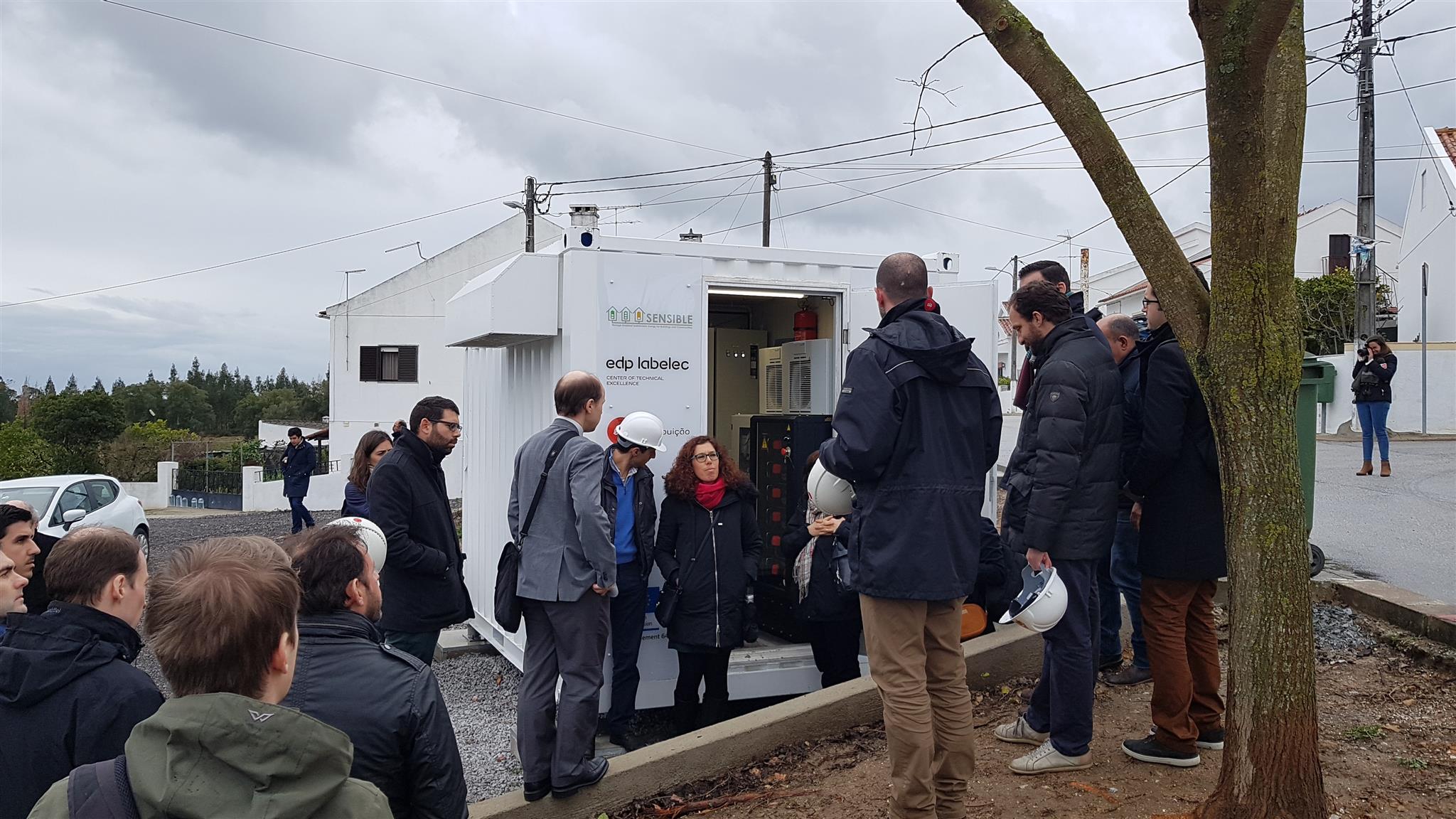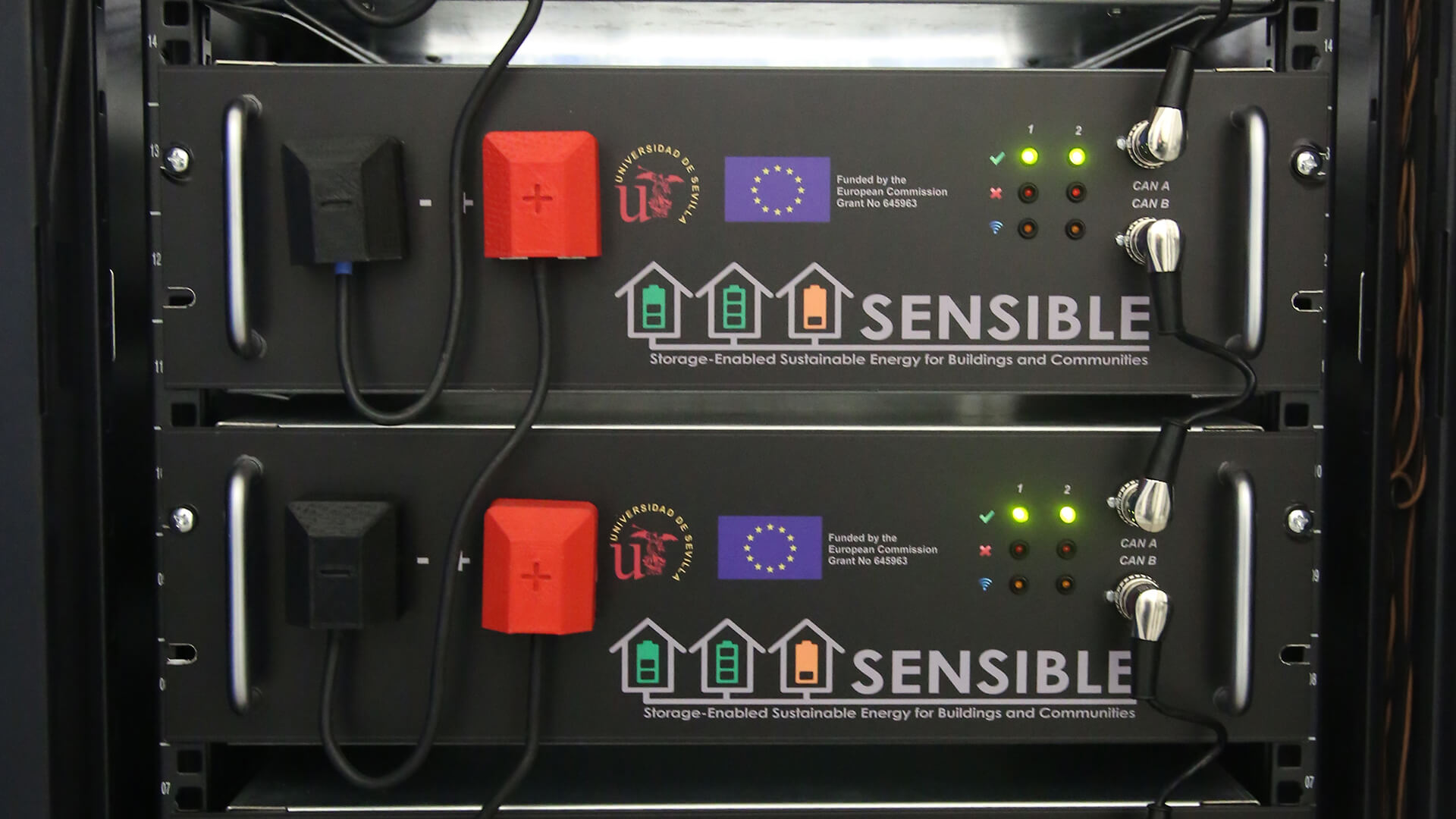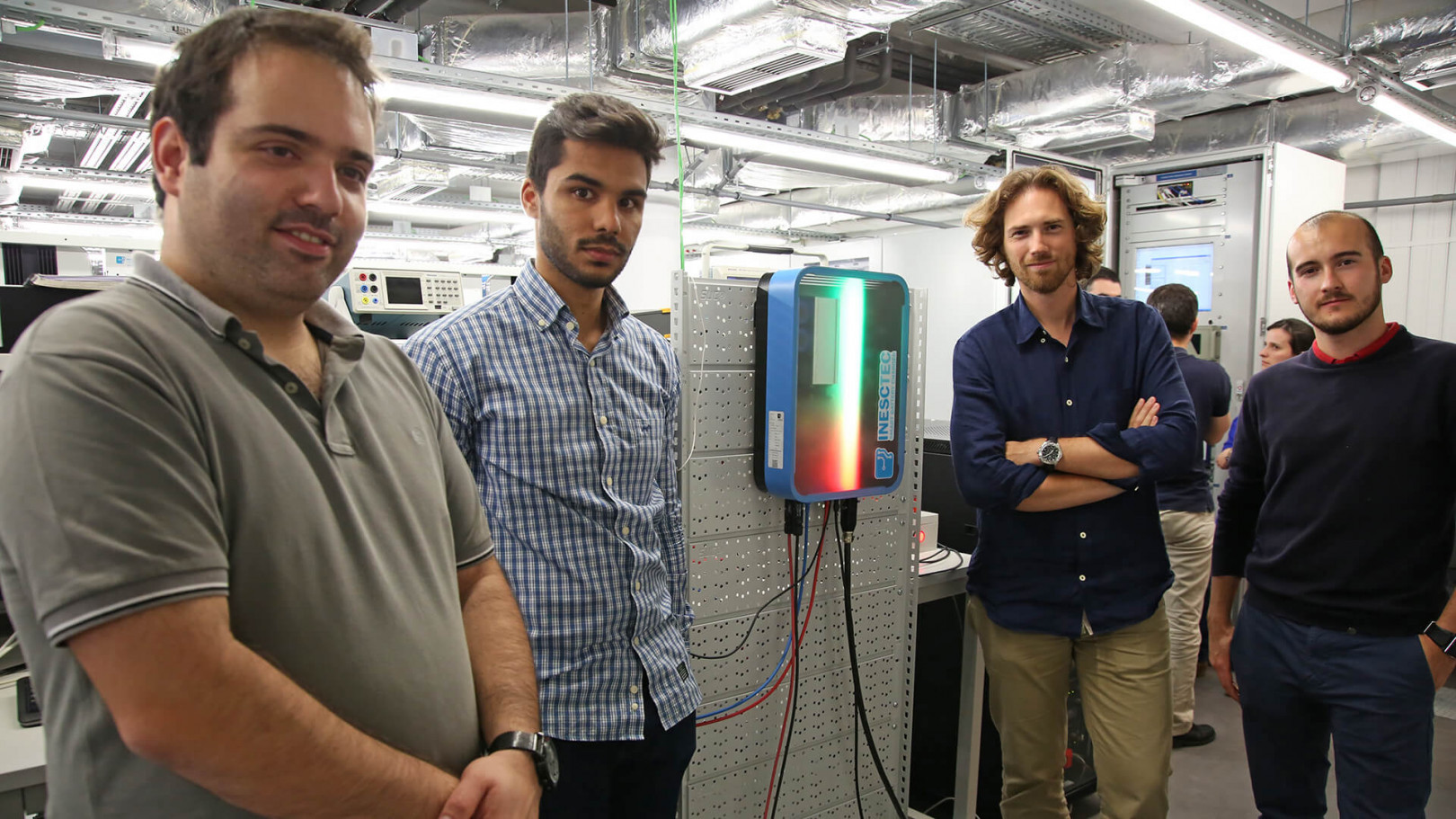INESC TEC sets up and tests new solutions of project SENSIBLE
Starting in 2015, project SENSIBLE, which is now close to its end, has been exploring the benefits of using energy storage technologies such as batteries, our homes, communities and even distribution grids to create a more sustainable and reliable power supply.
01st June 2018
With project coming to an end, the researchers from INESC TEC went to Évora to validate concepts
May was a decisive month for the project's success, in particular for the Portuguese demonstrator. A team of researchers from INESC TEC's Centre for Power and Energy Systems (CPES) was involved in the setup and tests of the algorithms and prototypes of the developed inverters that are part of the Portuguese demonstrator, more specifically in the village of Valverde.
Clara Gouveia, senior researcher from CPES explains: "the demonstrator is pretty complex as it involves equipment, prototypes and applications from 6 partners and its integration on EDP's (Energias de Portugal) systems”.
“In May we setup and tested the two inverters that we developed after an extensive period of testing at our lab and at EDP's LABELEC. Additionally, we've been testing the grid management algorithms in collaboration with the applications from the partners involved in the demonstrator and all the equipment installed in the pilot. In this project, our contribution went from the design of what would eventually be the demonstrator, to the development of the management and planning algorithms of the distribution grids and the inverters prototypes and their integration and validation on the field", states the INESC TEC researcher.
This EUR 15M project, led by the German company Siemens and with other 14 European partners, sees the participation of four Portuguese institutions - EDP LABELEC, EDP Distribuição, the Institute for Systems and Computer Engineering, Technology and Science (INESC TEC) and Siemens Portugal.
Besides Portugal, the technologies are also being tested in Nottingham (United Kingdom) and Nuremberg (Germany).
In the case of Portugal, the project is focused on showing the benefits of incorporating battery systems into the distribution grid and the residential self-consumption solutions, and how flexibility can benefit both the grid operator and the consumer through new business models and market mechanisms.
The self-consumption solutions that incorporates solar panels, battery systems and storage water heaters were installed in Valverde in August 2017 and are now being used for the network operation, on what could be the future consumer-oriented market mechanisms.
When it comes to the distribution grid, project SENSIBLE represented a unique opportunity of testing new management and operation strategies of the network, reflecting more flexibility in case of abnormal situations. Overhead power lines with a further geographical division are typical in the rural areas, which means that these grids are often more exposed to adverse atmospheric phenomena that can cause service disruption. Under normal operation, storage systems are controlled in order to improve operation efficiency in particular during peak times and in emergency conditions so that they can provide electricity to a small community for a reasonable period of time.
"On the other hand, we will start to see more active consumers with the ability to manage their consumption and consequently being able to save more money, more participative and with more information", explains the INESC TEC researcher.
These systems, based on lithium-ion batteries are supported by the algorithms developed under the project and are intended to be another option to be included into the portfolio of the distribution grid operator when ready.
The INESC TEC team that has been working in all this solutions for project SENSIBLE is: Clara Gouveia, Miguel Miranda, António Lopes, José Gouveia, Justino Rodrigues, André Garcia, João Basílio, Ricardo Ferreira, Leonel Carvalho, Jean Sumaili, André Madureira, Carlos Moreira, Ricardo Bessa, Rui Esteves Araújo, Manuel Matos and João Peças Lopes.
partners

Project SENSIBLE has been chosen by the European Commission to participate in an international event
Also in May, the project was selected by the European Commission to be presented at "Cleantech Capital Day" in Malmo, Sweden, as an innovative project in the energy field.
Cleantech Capital Day is one of the most emblematic events in the field of Sustainable Innovation and gathers around 200 professionals, whether from the industry, to investors, public sector or startups. This year, the event took place on 22 and 23 May.
SENSIBLE was seen by the European Commission as a project that is developing solutions in key areas that are priorities for the European Union in terms of research and development.
Following this recognition, SENSIBLE may be able, like other awarded projects, to be part of the World Alliance portfolio for efficient solutions that will be presented to the Heads of State and Government at COP24, in Katowice, Poland, later this year.
The SENSIBLE partners
Besides the consortium leader (Siemens Aktiengesellschaft in Germany) and the four Portuguese partners, SENSIBLE also features the participation of the University of Nottingham (United Kingdom), ARMINES (France), Empower (Finland), Green Power Technologies (Spain), Indra (Spain), K&S GmbH Projektmanagement (Germany), Meadows Ozone Energy Services (United Kingdom), the University of Seville (Spain) and Technische Hochschule Nürnberg Georg Simon Ohm (Germany).
The researchers mentioned in this news piece are associated with INESC TEC and UP-FEUP.


